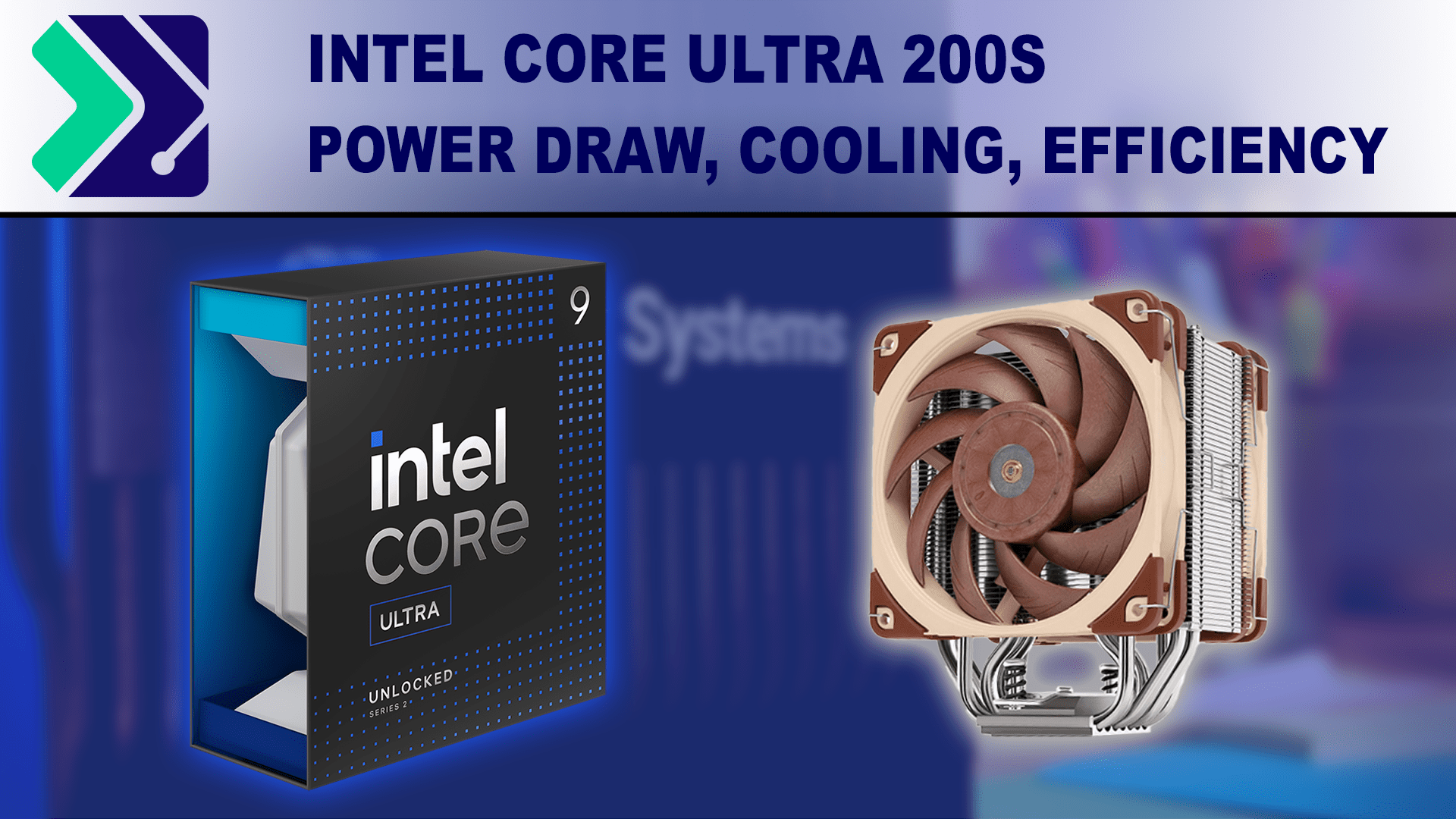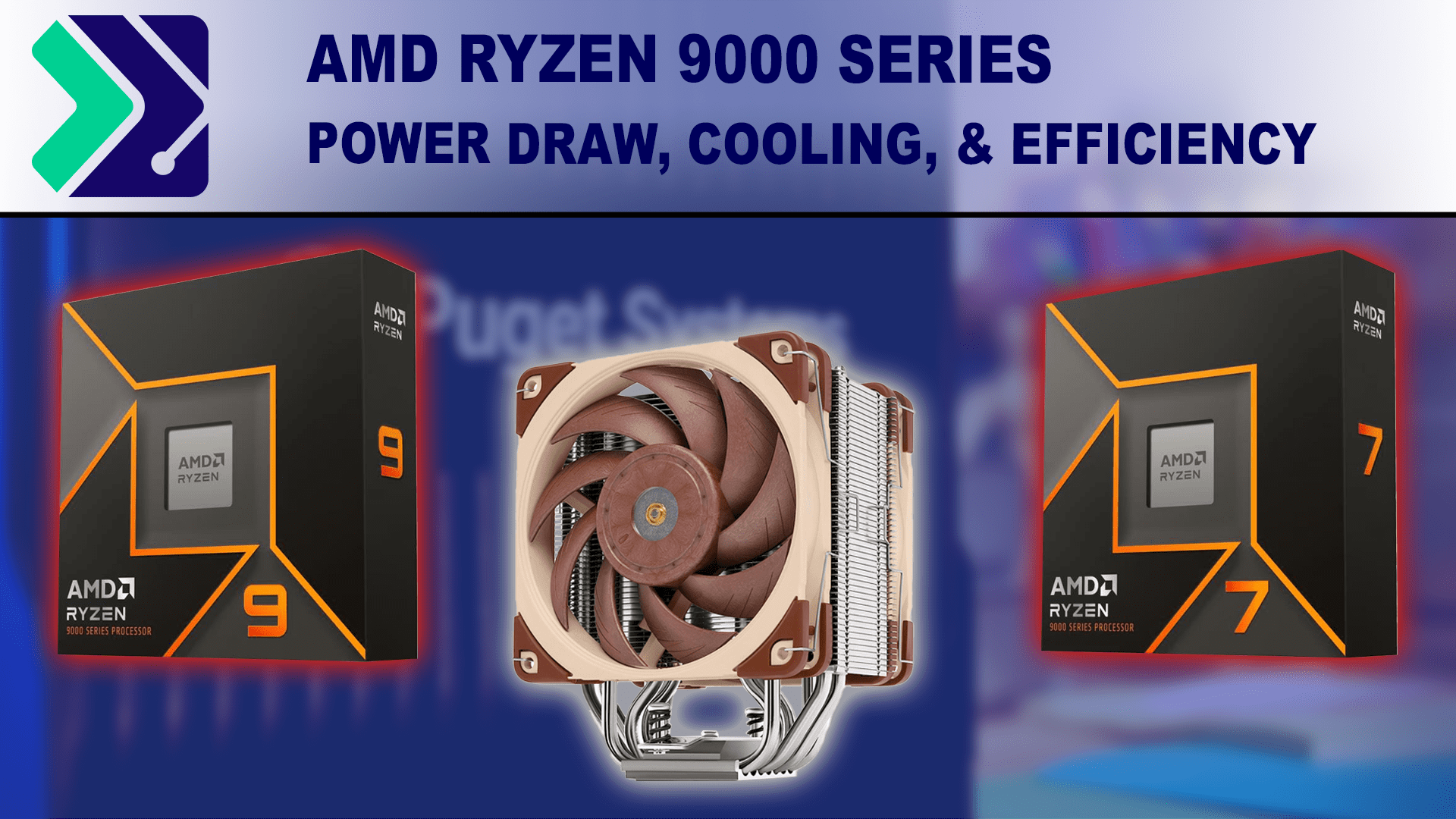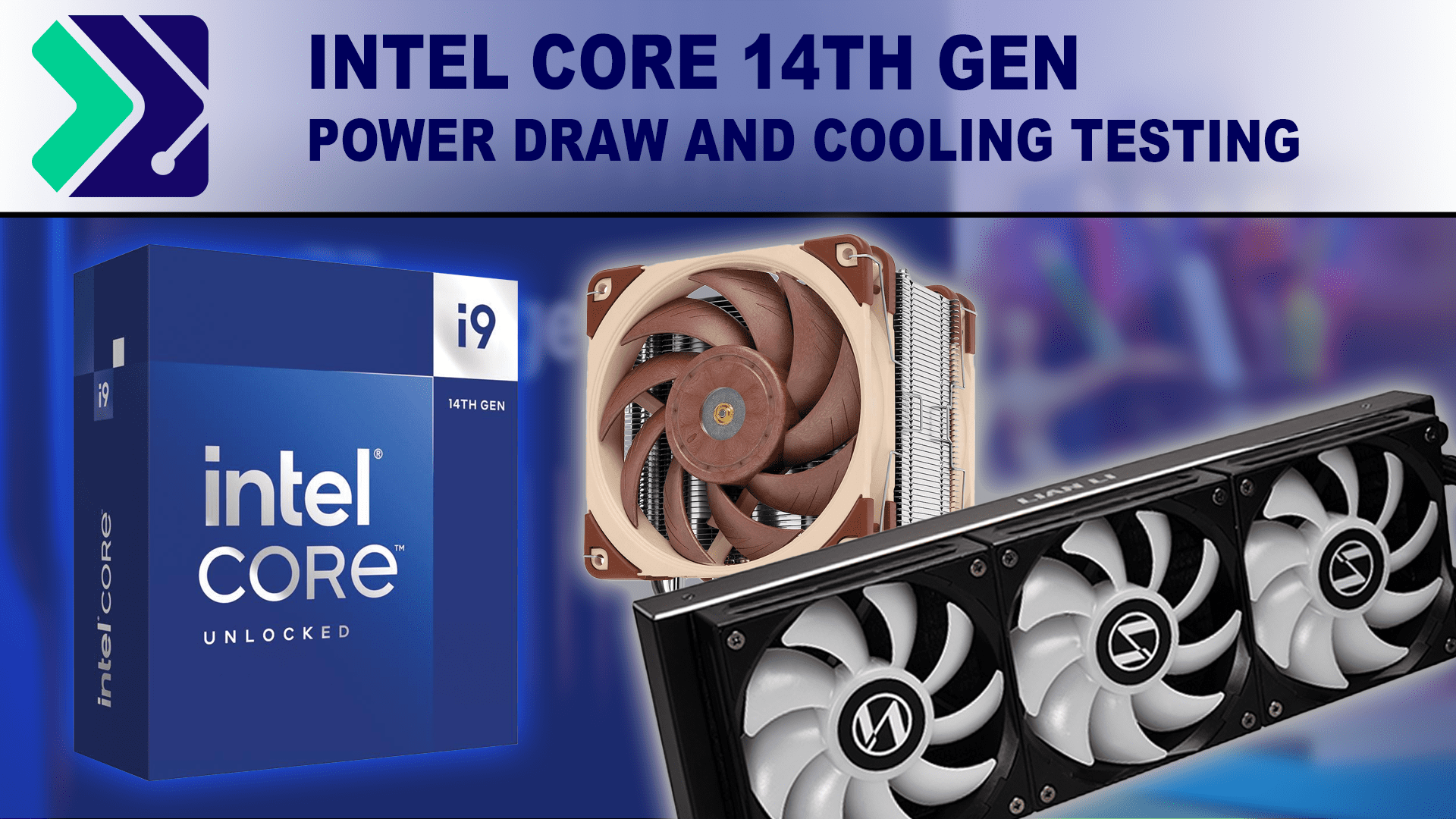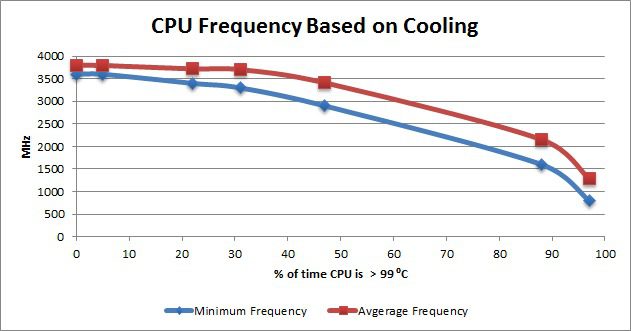In this article, we examine the power draw and efficiency of the new Intel Core Ultra 200S series processors.


In this article, we examine the power draw and efficiency of the new Intel Core Ultra 200S series processors.

In this article, we examine the power draw and efficiency of the new AMD Ryzen 9950X and 9700X.

In this article, we examine the impact that power limits and large coolers have on content creation performance for the 14900K.

Intel’s 13th Gen processors bring terrific performance across the board, but many modern processors have been criticized for their high power draw and heat output. However, we have found that most CPUs only operate at these high temperatures when the motherboard BIOS is allowed to automatically overclock the processor above the official Intel specifications. Does running them at reference speeds impact performance, and how much of a difference does it make for thermals?

The new AMD Ryzen 7000 Series of processors bring terrific performance across the board, but have been criticized in many reviews due to the fact that they often hit CPU temperatures of 95 Celcius under heavy loads. However, we have found that they only operate at these high temperatures when the motherboard BIOS is allowed to automatically overclock the processor above the official AMD specifications. Does running them at reference speeds impact performance, and how much of a difference does it make for thermals?

While we all know that modern processors need active cooling, there is actually very little official information on how temperature affects a CPU’s performance. Do you really need a high-end liquid cooled setup to get peak performance, or is the little stock cooler that comes with most CPUs enough? In this article we will examine exactly how temperature affects CPU performance.

Even before launch of the Intel Ivy Bridge CPUs in April 2012, it was discovered that the CPUs were running a bit hotter than expected. The TIM paste was proven to be the culprit by the Japanese site PC Watch when they reported that by replacing the TIM paste they saw a load temperature drop of 8-11 *C at stock clock speeds, and an amazing 15-20*C drop in load temperatures when overclocked to 4.6 GHz.
We decided that it was time to do our own testing to see if anything has changed in recent months. The result was some very interesting data that caught us a bit by surprise.
The latest powerhouse CPU offering from Intel is here. The Intel Core i7 — a quad-core processor available in three different speed configurations that is really taking the computing world by storm. Several new features have been added to this processor, such as on-chip DDR3 memory controller, smart cache, and HD boost. Of course, with all the extra features and power comes the issue of how to keep it cool. The Core i7 may be powerful, but it is also very hot running. From the stock heat sinks and fans, to liquid cooled solutions, the cooling possibilities are many. Unfortunately we can’t test them all, so in this article we’ll take a look at 4 popular cooling solutions and how they fared.